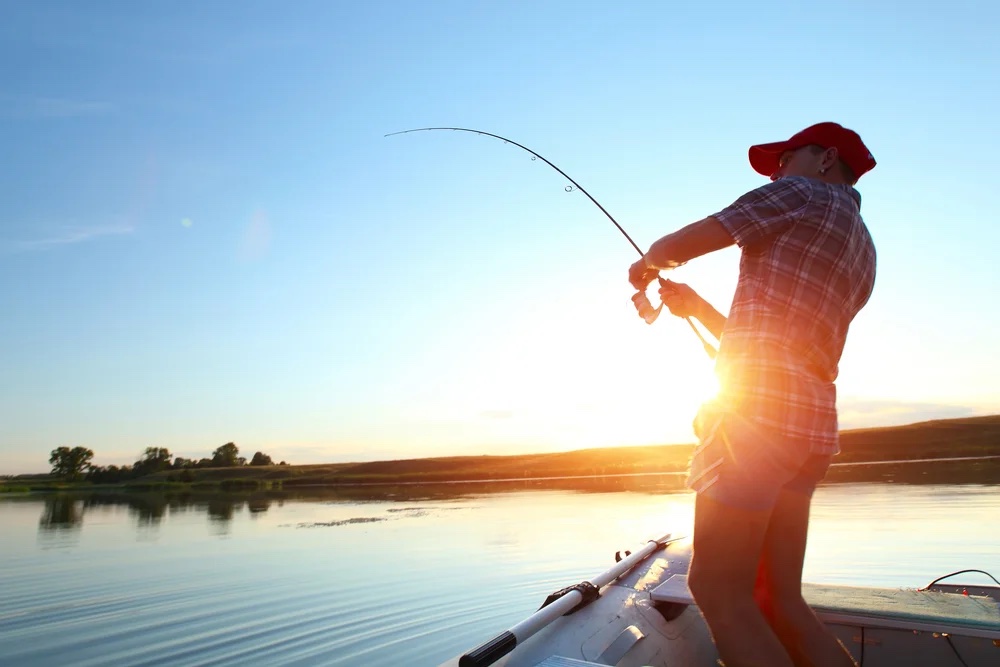Firstly, these tips have been tested and proven effective over time, which means they are reliable and more likely to yield successful catches. This can increase confidence and satisfaction while fishing.
Secondly, tried and true tips can help anglers save time and effort. Instead of experimenting with new techniques, anglers can use established methods that have already been optimized for success.
Finally, following well-known fishing tips can help anglers learn more about the behavior of fish and their habitats. This can lead to a deeper understanding and appreciation of the natural world, making the fishing experience more fulfilling and educational.
Whether you’re headed to a Minnesota lake or a local farm pond, these tips should help you hook more fish.
A Few of the Most Often Cited Fishing Tips for Lake or Pond Fishing
Here are some commonly cited fishing tips for lake or pond fishing:
- Look for structure: Fish often congregate around structures such as submerged logs, rocks, and weed beds. These provide hiding places and food sources, so try to fish around these areas.
- Pay attention to the weather: Different weather conditions can affect fish behavior. For example, fish tend to be more active during overcast days or when there is a light breeze. Conversely, they may be less active during extremely hot or cold temperatures.
- Use live bait: Live bait such as worms, minnows, or crickets can be very effective in attracting fish. Make sure to use the appropriate size and type of bait for the fish you’re targeting.
- Vary your retrieve: Experiment with different retrieval speeds and techniques such as twitching or pausing your lure. This can mimic the movement of prey and entice fish to strike.
- Be patient: Fishing requires patience and persistence. Don’t give up if you don’t catch anything right away. Sometimes it takes time to find the right spot or lure to attract fish.
Overall, these tips can help increase your chances of success when fishing in lakes or ponds but are certainly no guarantee that you’ll always have a great fishing day.
Some Common Fishing Mistakes:
- Not using the right gear: Using the wrong gear can make fishing more difficult and less enjoyable. Make sure you have the appropriate fishing rod, reel, line, and lures or bait for the type of fishing you’ll be doing.
- Poor timing: Fish are more active during certain times of the day or year. Fishing during the wrong time can result in poor catches. Research the best times to fish for the species you’re targeting.
- Poor location: Fishing in the wrong spot can also result in poor catches. Do your research ahead of time to find out where the fish are likely to be found.
- Not paying attention to the weather: As mentioned earlier, weather conditions can affect fish behavior. Ignoring the weather can result in poor catches.
- Being too loud: Loud noises and movements can spook fish, causing them to swim away. Try to be as quiet and still as possible while fishing.
- Not practicing catch and release when appropriate: Overfishing can harm fish populations, so it’s important to practice catch and release whenever possible. Make sure you know how to properly release fish back into the water.
- Not taking care of your gear: Not properly maintaining your gear can result in equipment failure and missed opportunities. Make sure to clean and store your gear properly after each use.
Avoiding these common fishing mistakes can help increase your chances of success and make your fishing experience more enjoyable.
Is the Adage “Wind out of the east fish bite the least and wind out of the west bite the best” True?
The adage “wind out of the east, fish bite the least; wind out of the west, fish bite the best” is a commonly cited fishing tip, but it is not necessarily true.
While it is true that wind can affect fish behavior, the direction of the wind is just one of many factors that can impact fishing success. Factors such as water temperature, light conditions, and the presence of food sources are also important.
In addition, different species of fish may respond differently to wind direction. Some species may be more active when the wind is blowing in a certain direction, while others may be less active.
It’s important to consider all the relevant factors when planning a fishing trip, rather than relying solely on one adage or tip.


[…] the one that best fits your budget and fishing style. Before you go, be sure to read up on various fishing tips […]
[…] are just a few of the many tips and tricks that can be helpful for catching fish in Northern Minnesota. By combining these strategies with […]